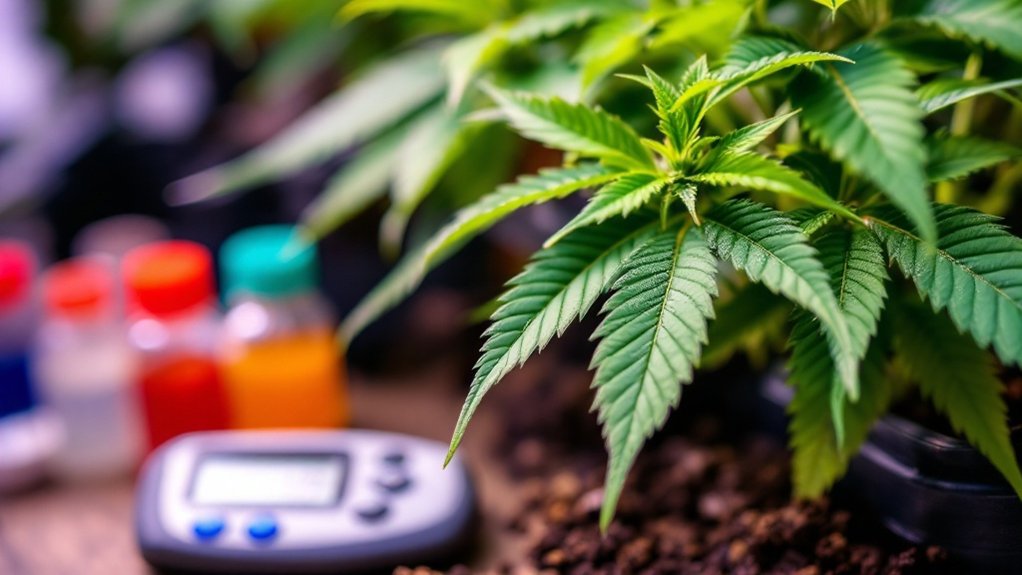Section 280E prevents cannabis businesses from deducting ordinary business expenses on federal tax returns, resulting in effective tax rates of 40-80% compared to the standard 21% corporate rate. This IRS provision applies specifically to businesses trafficking Schedule I substances, which includes cannabis despite state-level legalization. Only direct inventory costs can be deducted, creating significant financial burdens that limit growth, especially for retailers. This tax disparity shapes business models and operational strategies throughout the emerging industry.

While most American businesses categorize expenses like rent, employee wages, and marketing as standard tax deductions, cannabis enterprises operate under a dramatically different tax reality. These companies face significant financial hurdles due to Section 280E of the Internal Revenue Code, enacted by Congress in 1982 following a tax court ruling that favored a convicted cocaine trafficker. This provision specifically prohibits businesses from deducting ordinary business expenses from gross income associated with the trafficking of Schedule I or II substances. Since cannabis remains federally classified as a Schedule I controlled substance, state-legal cannabis businesses must comply with this restrictive tax policy despite operating lawfully within their respective states.
The financial implications of Section 280E are substantial, forcing cannabis businesses to face federal tax rates of 40-80% compared to the standard 21% corporate tax rate applied to other industries. Retailers in the cannabis sector experience the most severe impacts, as they have fewer costs eligible for deduction as cost of goods sold. The provision prevents these businesses from deducting otherwise ordinary and necessary business expenses such as wages, rent, utilities, and insurance. Only the direct costs associated with producing or acquiring their inventory—recognized as cost of goods sold—can be subtracted from gross receipts when calculating taxable income.
This tax burden creates operational challenges throughout the cannabis industry. Companies struggle to invest in building improvements, operational expansions, and employee benefits. The inability to deduct normal business expenses limits cash flow and hinders growth opportunities, particularly for smaller operations that typically pay higher effective tax rates than their larger counterparts. Section 280E was originally created in response to the Edmondson v. Commissioner case that revealed tax loopholes for drug dealers.
Cultivation businesses generally fare better under Section 280E than retail operations, as they can allocate more expenses to cost of goods sold.
The IRS confirmed as recently as June 2024 that Section 280E continues to apply to cannabis businesses operating in state-legal markets. This regulatory situation creates a fundamental disadvantage for cannabis enterprises compared to businesses in other industries. The structure of cannabis operations has evolved in response, with many companies making strategic decisions about vertical integration to mitigate tax liability. Despite ongoing discussions about rescheduling, the Justice Department has only initiated formal rulemaking to consider changing marijuana’s classification, leaving Section 280E fully enforceable until any final rule is published.
Despite growing state-level legalization, the federal tax code remains a significant obstacle for this emerging industry, limiting its potential for community investment and sustainable growth.
Frequently Asked Questions
How Can Cannabis Businesses Avoid Triggering Section 280E?
Cannabis businesses cannot fully avoid Section 280E since it applies specifically to businesses trafficking in federally controlled substances.
However, they can minimize its impact through careful business structuring, separating plant-touching operations from ancillary services.
Businesses should maintain meticulous accounting systems that properly allocate expenses between cost of goods sold (which remains deductible) and operating expenses.
Additionally, non-trafficking activities conducted by separate legal entities may allow for ordinary business deductions outside the scope of 280E.
What Specific Documentation Should Cannabis Businesses Maintain for Tax Purposes?
Cannabis businesses should maintain detailed records including tax returns, sales receipts, expense documentation, and inventory tracking logs.
Financial statements, including profit and loss reports segregating costs between production and retail activities, are essential.
Business formation documents, employee records, and asset registers must be preserved.
Cannabis operators should also keep thorough documentation of costs of goods sold versus selling expenses, maintaining clear separation to demonstrate compliance with tax regulations.
Does Section 280E Affect State-Level Tax Obligations?
Section 280E’s impact on state-level taxation depends on whether states conform to or decouple from federal tax code.
States that conform to federal tax provisions apply similar expense deduction limitations to cannabis businesses, resulting in higher effective tax rates.
Conversely, states that have decoupled allow cannabis businesses to deduct ordinary business expenses on state returns, providing partial tax relief despite federal restrictions.
The resulting dual tax compliance burden creates complex tax planning requirements for businesses operating in the cannabis industry.
Can Cannabis Businesses Separate Operations to Minimize 280E Impact?
Cannabis businesses can legally separate their operations to minimize 280E impact through strategic entity structuring.
By establishing distinct legal entities for plant-touching and non-plant-touching activities, businesses may shield portions of their operations from harsh tax limitations.
This separation requires maintaining separate facilities, employees, books, and operational procedures to withstand IRS scrutiny.
Proper documentation and clear operational boundaries between entities are essential for this strategy to be considered legitimate under current tax court precedents.
Are There Pending Legislative Changes to Section 280E?
Yes, there are significant pending legislative changes to Section 280E.
In February 2025, Senators Lankford and Ricketts introduced legislation that would make cannabis business tax restrictions permanent, regardless of marijuana’s scheduling status.
Simultaneously, the potential rescheduling of cannabis from Schedule I to Schedule III could eliminate 280E restrictions entirely for cannabis businesses.
Constitutional challenges through cases like Canna Provisions v. IRS also aim to invalidate 280E for state-legal operations, creating multiple pathways for potential reform.
This article provides general educational information about cannabis compliance requirements. Specific regulations vary by state and change frequently. Always consult with legal counsel and compliance professionals for guidance on your specific situation and jurisdiction. For more information, check out our Cannabis Compliance Guide.









